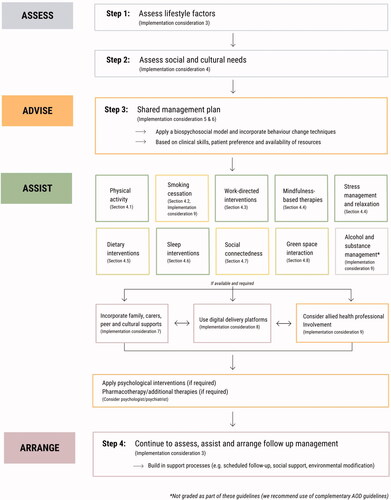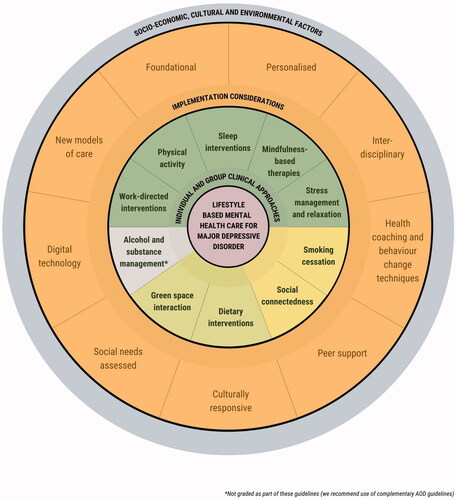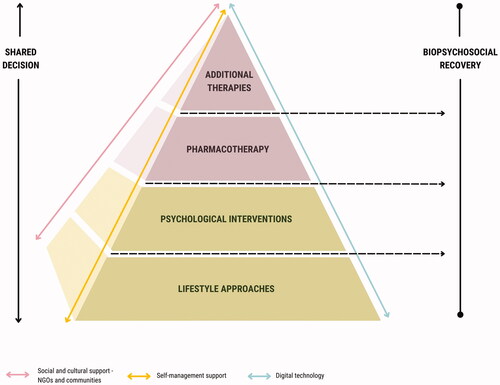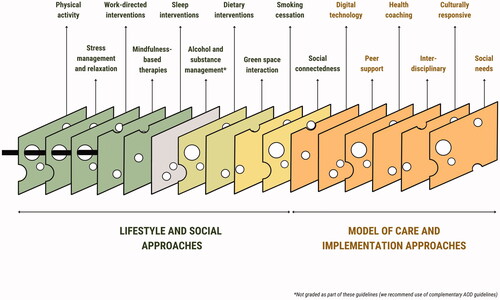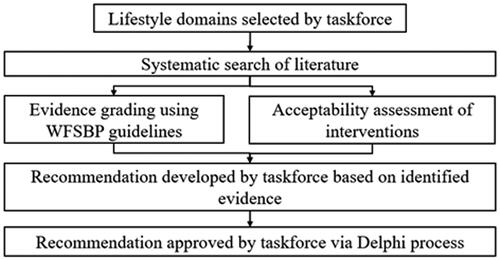Figures & data
Table 1. Summary of recommendations.
Table 2. Evidence Grading System as recommended by the WFSBP (Hasan et al. Citation2019).
Table 3. Available formal assessment tools and suggested prompting questions related to specific lifestyle domainsa.
Table 4. Future implementation considerations.
